 Many of the decisions up for adoption – which were supported by the vast majority of parties – were blocked by a handful of countries, or in some cases just one. Meanwhile environmental NGOs say many of the decisions adopted include provisions that weaken the recommendations and proposals tabled at the meeting.
Many of the decisions up for adoption – which were supported by the vast majority of parties – were blocked by a handful of countries, or in some cases just one. Meanwhile environmental NGOs say many of the decisions adopted include provisions that weaken the recommendations and proposals tabled at the meeting.Triple Cops: Difficult negotiations lead to series of ‘fixes’
 Many of the decisions up for adoption – which were supported by the vast majority of parties – were blocked by a handful of countries, or in some cases just one. Meanwhile environmental NGOs say many of the decisions adopted include provisions that weaken the recommendations and proposals tabled at the meeting.
Many of the decisions up for adoption – which were supported by the vast majority of parties – were blocked by a handful of countries, or in some cases just one. Meanwhile environmental NGOs say many of the decisions adopted include provisions that weaken the recommendations and proposals tabled at the meeting.Toxic pesticide, pentachlorophenol, banned globally
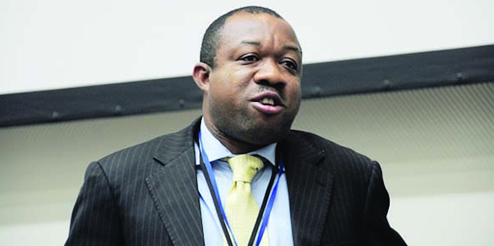
During the meeting, India surprisingly rejected the findings of the Stockholm Convention’s own scientific expert committee in which they participated. Switzerland triggered the voting procedure – the first in the history of the convention. Ninety-four countries voted in favor of global prohibition of pentachlorophenol; two opposed; and eight countries abstained.
Obstetric fistula linked to poor access to basic health care
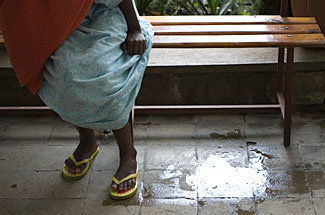
The World Health Organisation (WHO) says it is one of the most serious and tragic injuries that can occur during childbirth where there is prolonged and obstructed labour without treatment.
Buhari urged to make tuberculosis control a priority
Stakeholders working to reduce the burden of Tuberculosis under The Global Fund to Fight AIDS TB and Malaria grant to Nigeria have called on Gen. Muhammadu Buhari, the president-elect, to make TB control a priority when he assumes office as president. The call was made at the end of Quarter 1 2015 TB Grant Project Implementation review meeting held in Abuja from 12th to 13th of May 2015.
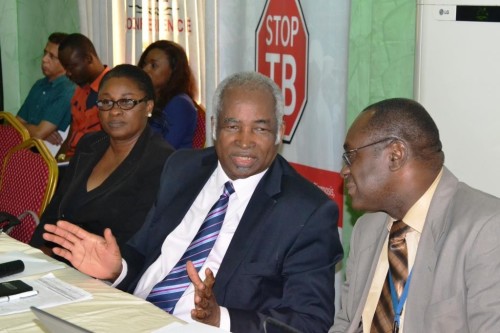
The stakeholders acknowledged the current support from government and immense contribution from development partners to TB Control in Nigeria and recommended adequate budgetary allocation and timely release of funds at federal, state and local government levels.
The group also called for intensified advocacy efforts to the highest level of government including the legislature and state governors. Chairman of the meeting, Prof. O. A Ladipo, President and CEO of Association for Reproductive & Family Health, maintained that tuberculosis remain a major public health concern in Nigeria. He said this was based on the result of the first national prevalence survey carried out in 2012 which revealed an overall prevalence rate of 326 per 100,000 population in Nigeria
Nigeria was rated in 2014 as the third highest Tuberculosis (TB)-burden country in the world and number one in Africa by World Health Organisation (WHO). ARFH is working with National TB and Leprosy Control Programme (NTBLCP), International Anti-Leprosy Organization (ILEP Partners – German Leprosy Relief Association, GLRA; Damian Foundation Belgium, DFB; The Leprosy Mission Nigeria, TLMN and Netherlands Leprosy Relief, NLR), Health Alive Foundation to reduce significantly the burden of TB in Nigeria through the Global Fund Round 9 Phase II TB grant to Nigeria
‘Multi-billion-dollar SE4All initiative can halve global energy poverty’
Billions of dollars mobilised under the Sustainable Energy for All (SE4All) initiative can halve energy poverty worldwide and more investment is being committed, but there is still a long way to go to meet the twin challenges of energy poverty and climate change.
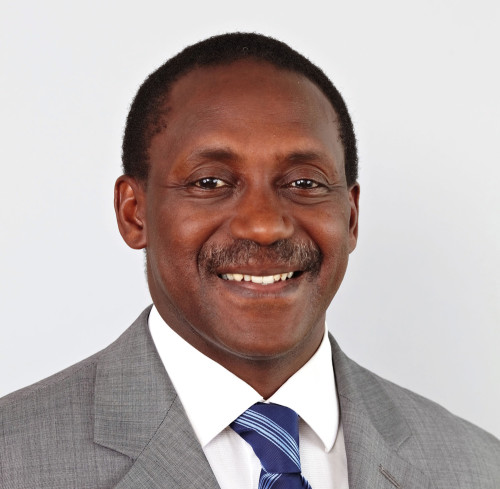
More than 90 million people have already gained access to sustainable energy under pledges made for the initiative, which is rallying governments, international institutions, businesses, banks and civil society towards three interlinked targets by 2030: achieving universal access to modern energy services, doubling the rate of improvement in energy efficiency and doubling the share of renewables in the global energy mix.
“How do we convert commitments to kilowatt hours for real people? That is the trillion-dollar question,” Kandeh Yumkella, the UN Secretary-General’s Special Representative for Sustainable Energy for All and CEO of the SE4All initiative, told delegates to SE4All’s second annual Forum in the UN General Assembly Hall today.
“This is not about charity. This is about markets and investments. We see this as a trillion-dollar opportunity, not a trillion-dollar challenge.”
Some 1.1 billion people worldwide have no access to electricity, and nearly three billion rely on dangerous and polluting traditional fuels such as wood, charcoal and dung to cook and heat their homes.
At the same time, extensive energy use, especially in high-income countries, creates pollution, emits greenhouse gases and depletes non-renewable fossil fuels.
Commitments already made under the SE4All initiative by the EU, Germany and the United States alone are set to help developing countries to provide energy access for a total of nearly one billion people by 2030, but population growth means this will remain well short of universal access.
Partners at the four-day Forum in New York are announcing further significant commitments in both funding and tangible action, but there is still far to go.
The second edition of SE4All’s Global Tracking Framework, released by the World Bank at the SE4All Forum on Monday, estimates total annual investment of up to USD 1.2 trillion will be needed to 2030 in order to achieve these ambitious targets – triple the current flows of around USD 400 billion a year.
“Governments do not have that kind of resource. Only public-private partnerships will generate this kind of resource flow,” Yumkella said. “The framework we show requires investment not only in the South, but in the rich North.”
Catalyst for action and investment
Building momentum on energy issues ahead of both the September UN Summit to adopt the post-2015 development agenda, and the December Climate Conference in Paris, the Forum aims to help shape the direction of energy policy and act as a catalyst for vital investment in the crucial decades to come.
Two days are devoted to a ‘Global Energy Ministerial’ – the first to be held at the United Nations – in the UN General Assembly Hall.
Around 40 ministers and top figures from business, international organizations and development banks are attending the event, which has attracted well over a thousand participants from the developed and developing world alike.
Also taking part is the multi-platinum-selling musician Akon, who co-founded Akon Lighting Africa in 2014 to provide solar power to millions of households across the continent.
Commitments at the Forum
Commitments made at the Forum, which runs from May 18-21 under the theme of ‘Financing Sustainable Energy for All’, include the following:
- The European Union said grants of EUR 3.5 billion from 2014-2020 would leverage sustainable energy investments of up to EUR 30 billion for electricity generation, transmission and access. This includes funding through a new facility, ElectriFI, that aims to boost private sector investments by bridging gaps in project financing.
- The Global Environment Facility said its new Sustainable Cities programme, expected to be approved next month, would support 11 countries and 23 cities with USD 150 million and leverage USD 1.4 billion to promote sustainable urban development planning. It also pledged USD 3 billion in projects and programmes to support climate change mitigation and adaptation in 2014-2018.
- The OPEC Fund for International Development said it would turn an earlier one-time pledge to provide USD 1 billion to alleviate energy poverty into a revolving fund, to be replenished on an ongoing basis. Its commitments to funding under the original pledge have already exceeded USD 1.4 billion.
- China said plans to provide all its people with electricity by 2015 would be completed on time, and the country was committed to increasing the non-fossil fuel share of its energy consumption to 15% in 2020 and 20% by 2030, compared with about 11% last year.
- Netherlands-based NGO ENERGIA said it was committing EUR 13 million of its donor-government funding over the next five years to energy-related activities, including capacity-building for more than 3,000 women-led businesses to deliver energy services to more than 2 million consumers.
- Barbados, which already has universal access to modern energy services, said it was working to generate half its energy from renewables and cut electricity consumption by 22 per cent by 2020.
- As well as providing fresh budget funding for SE4All’s small Global Facilitation Team, the United Kingdom pledged to support a new Green Mini-Grids in Africa programme to provide clean, safe energy access to one million people in Kenya and Tanzania.
- PowerGen Renewable Energy said it would provide 800,000 beneficiaries in East Africa with electricity by 2020 through 1100 solar micro-grids.
- Italian utility ENEL pledged to invest EUR 8.8 billion in 2015-2019 on developing renewable energy capacity, a 50% increase from previous plans, adding up to 7,100 MW to its installed capacity worldwide.
Launched in September 2011, the SE4All initiative is a multi-stakeholder partnership working with governments, businesses, civil society, banks and international institutions to meet three interlinked goals by 2030:
- ensuring universal access to modern energy services;
- doubling the share of renewable energy in the global energy mix; and
- doubling the rate of improvement in energy efficiency worldwide.
UN Secretary-General Ban Ki-moon and World Bank Group President Jim Yong Kim co-chair the SE4All initiative, which addresses the crucial global challenge of addressing energy poverty while at the same time mitigating climate change.
Lekan Fadina: Road to Paris 2015 (19)
This piece is on Nigeria’s preparedness and what we can all do to ensure that we all contribute to the Nigeria input to COP21 and beyond.
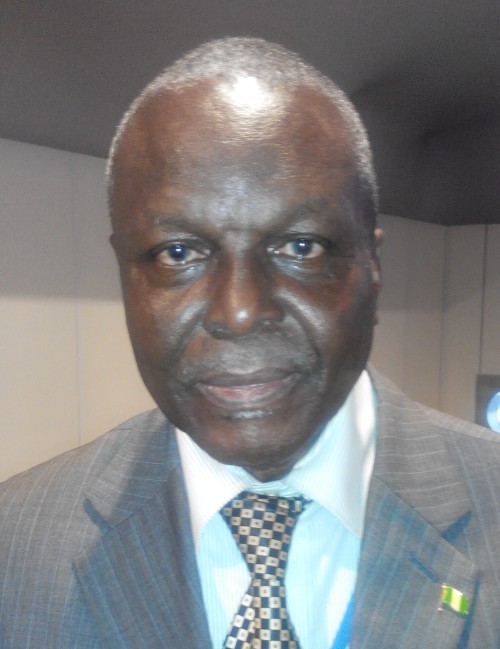
COP 21 in Paris is expected to get the largest gathering of leaders, negotiators, heads of state, business, non-governmental organisations and other stakeholders. It is aimed at reaching a universal agreement to reduce emission and to move the global economy on the path of low carbon economy.
The Minister of Environment has set up a committee to prepare Nigeria’s position for COP21 and, from available information, the think-tank is advancing in its work. We wish the committee success in its assignment.
In the last three weeks the Department of Climate Change, in collaboration with the United Nations Development Programme (UNDP), has continued to play a critical role in the arrangement towards Paris. These included the workshop on the Nigeria Document on Intended Nationally Determined Contributions (INDCs) which was a fall-out of the “Lima Call for Climate Action”.
It was decided at COP19 in Warsaw, Poland that member states needed to prepare their documents with a view to give them the opportunity to know how they propose to achieve the objectives of the Convention – reducing greenhouse gases (GHGs).
A one-day Workshop helped to let the participants know that what the contents of the document should be and how various arms of the Nigeria development sector are expected to contribute to the document. The workshop provided a useful platform for participants to have a clear understanding of the information required from different sectors of the economy.
It was stressed that the document needed the input of all sectors – government, private sector, political class, non-governmental organisations and the public. The participants were grouped into various sectors and were told the importance of their contributions as their input would go a long way in ensuring buy-in and ownership.
The session was followed the second day with an expert meeting on the information gathering, input and documentation that will further assist in the production of the INDC.
Another programme organised by the Department of Climate Change in the Federal Ministry of Environment in collaboration with the UNDP was a three-day Back-to-Back Workshop, which involved preparations for the UNFCCC’s June 2015 Sessional Meeting in Bonn, Germany in preparation towards COP 21 in Paris in December, 2015.
Participants had the opportunity to participate in a mock exercise of the negotiation text – UNFCCC Ad-Hoc Working Group on the Durban Platform for Enhanced Action (ADP). The Negotiation Text reflected work in progress and is without prejudice to whether the outcome will be on protocol, another legal document or agreed outcome with legal force as well as the legal nature of any particular provision.
The participants also had opportunity to learn about the status of negotiations as well as reviewing the Nigeria position on the various negotiation tracks. The participants were updated on the Adaptation Fund, Green Climate Fund, sourcing various Climate Funds, the process of Reddiness Programme, project selection, registration of National Implementation Entity and other financial institutions, as well as information for participating in financing of sustainable investments.
The questions and answers session provided opportunity for effective stakeholder input and engagement. The session also helped in simplifying some of the technical terms and concepts. The break-out groups provided opportunity for sharing experience, understanding the different frameworks and developing pipelines of projects and programmes. The third day provided the technical group the opportunity to work on the technical requirements of the conference.
The workshops were timely, useful, provided opportunity to share experience and to put in motion the train towards COP 21 in Paris.
We thank the Federal Ministry of Environment, the Climate Change Department and UNDP for their contributions to the success of the programmes. The participants also deserve commendation and we hope this will be the beginning as we still have a long way to go.
We appeal to everyone to support the efforts to prepare a good INDC document for Nigeria and also that we should play a leadership role in leading Africa to this important COP 21.
By Prince Lekan Fadina (Executive Director, Centre for Investment, Sustainable Development, Management and Environment (CISME). (He is a member of the Nigeria Negotiation Team, Africa Group of Negotiators and member, AGN Finance Co-ordination Committee). Website: www.cismenigeria.com. Email: cismevision@gmail.com. Twitter: @cismevision
Activists kick against Africa extractive activities, land grabs
Friends of the Earth Africa (FoEA) groups have decried the impact of extractive companies’ operations across the African region, cautioning that if communities are not adequately empowered to advocate for and defend their rights, more of them will be displaced leading to conflicts.
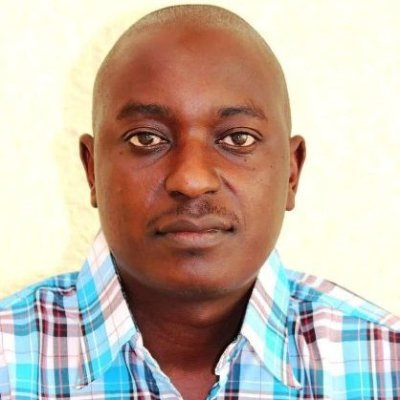
The groups made the call recently during a solidarity mission to oil host communities in Bunyoro sub-region (Albertine Region, Uganda) currently grappling with the challenges associated with the developing oil industry in the country. Participants in the solidarity visit were Friends of the Earth International, FoEA member groups from Uganda, Nigeria, Togo, Tanzania, Cameroon, Ghana, Mali, Tunisia and South Africa. Community representatives in Uganda affected by unsustainable development projects were also part of the team. The FoEA team was particularly concerned that residents of Kabale parish who have been asked by government to vacate the place to pave way for the oil refinery have received inadequate or no compensation at all for their lost properties.
Allan Kalangi of Friends of the Earth Uganda who conducted the team around the so called oil region of Uganda said, “The Government needs to open its eyes to the suffering of the communities affected by oil extraction related activities. Any development that does not put people first is undesirable and unsustainable.”
Affected communities in Kyapalooni and the whole of Kabale parish in Buseruka sub-county who have not received their compensation packages are experiencing severe food shortages after they were asked by the government not to grow any crops while the sanitation situation within the communities is appalling. The education of children in the affected communities hangs in balance and Kyapalooni Primary School has now been turned into a police post even before the government completes settling the disputes of the affected communities. Away from the refinery area, other communities in the region such as that of Kaiso-Tonya in the Hoima district have had their traditional fishing activities significantly affected by the drilling of oil wells in Lake Albert.
Stemming from the visit, the groups observed that the increasing extractive activities on the continent have spurred land grabs and displacement of local communities even as they noted that these developments have contributed largely to the food sovereignty challenges on the continent.
Godwin Ojo, executive director of Environmental Rights Action/Friends of the Earth Nigeria (ERA/FoEN), said: “What is happening in Uganda is a mirrors similar occurrences in communities of the Niger Delta here in Nigeria where the oil industry has spurred a five-decade long despoliation of the environment. Our communities must resist this and governments on the continent must take action to halt this vicious cycle.”
The groups were of the view that extractive companies, through their activities threaten and drown community voices in their propaganda rhetoric in concert with governments across the continent in the push for profits. Some of the elements of the propaganda rhetoric are misinformation and deliberately keeping communities in the dark about projects that may have far-reaching implications on their livelihoods and well-being. The situation has been made worse by the fact that the profit oriented companies and the government which is supposed to be on the side of the people all seem to speak the same language.
The members stressed that there was a need for richer understanding and definition of the concept of “Sustainability” which FoEA believes should be built upon in the needs and experiences of people at the grassroots level, this being at variance with the way corporates and governments in Africa perceive it to be.
The FoEA groups urged that the narrative of Keeping the Oil in the Soil and investment in sustainable alternatives be vigorously promoted in all spaces – government, communities, in the media. It was also recommended that communities have ongoing access to information relevant for their efforts to advocate for the respect and recognition of their human rights.
Paris 2015: Stakeholders review text, explore funding options
Nigeria last week showed serious intent towards a memorable participation at this year’s climate change summit in Paris as major stakeholders met in Abuja to review the outcome of the previous conference held last December in Lima, Peru and chart a new course for the future.
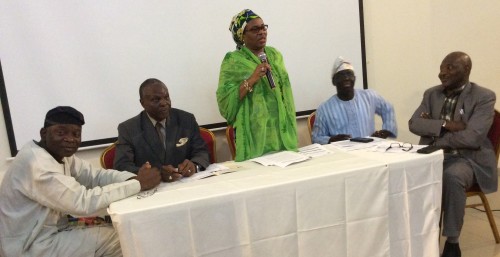
Participants brainstormed for three days at a Post Lima Workshop and Meeting of the Inter-ministerial Committee on Climate Change in preparation for the Subsidiary Bodies to the UNFCCC and the Ad Hoc Working Group on the Durban Platform for Enhanced Action (ADP 2.9), which will convene in June 2015 in Bonn, Germany and up to Paris. The forum was organised by the Department of Climate Change in the Federal Ministry of Environment, in collaboration with the United Nations Development Programme (UNDP).
The workshop was part of a series of national meetings planned to brief stakeholders on the outcomes of Lima, status of negotiations as well as reviewing Nigeria’s national positions on the negotiation issues. The workshop also examined opportunities in the context of Adaptation Fund and the Green Climate Fund (GCF) as regards sourcing the funds.
Permanent Secretary, Federal Ministry of Environment, Mrs. Nana Fatima Mede, opined that climate change is having disproportionate negative impacts on the developing countries, including urban and rural communities in Nigeria. According to her, climate change has long gone beyond a mere environmental issue but is now scientifically proven and understood to be political, economic as well as social issue.
“Climate change is disrupting national economies, militating against countries development efforts with the threat of reversing even successful efforts that have been achieved over the years.
“There is however a growing recognition that affordable, scalable solutions are available now that will enable us, as a developing nation, to leapfrog to cleaner, more resilient societies and economies thereby turning the challenges of climate change into opportunities,” she said.
Mede noted that the COP 21 came up with Lima Call for Action by agreeing to a text, which will essential form the core of the anticipated climate change agreement in Paris later in the year while the Ad Hoc Working Group on Durban Platform (ADP) meeting in Geneva elaborated on some of the issues in the adopted text for clearer understanding during implementation.
She said: “It is imperative that Nigeria prepares adequately for the meetings of the Subsidiary Bodies to the UNFCCC and the ADP sessions scheduled to hold early in June 2015. The session has been convened by the Climate Change Secretariat to continue negotiation and clarification of some issues yet to be resolved in anticipation for having another legally binding instrument in Paris 2015.”
The Permanent Secretary disclosed that Nigeria as Party to the UNFCCC (United Nations Framework Convention on Climate Change) has the opportunity to explore climate funding for the implementation of its climate change programmes and projects through adaptation fund, and Green Climate Fund (GCF).
“The GCF promotes low-emission and climate resilient development pathways by providing support to developing countries to limit or reduce their greenhouse gas emissions and to adapt to the impacts of climate change, taking into account the needs of those developing countries, particularly vulnerable to the adverse effects of climate change of which Nigeria is one.”
She added that approval has been obtained for the preparation of the nation’s Third National Communications (TNC).
“The TNC is expected to critically examine the components on the initial draft, identify sections where expert could elaborate upon and share lessons learnt from the second National Communication. The outcome of the TNC will afford the country the opportunity to show to the world what is, and how Nigeria is addressing the challenges of climate change.”
Director, Department of Climate Change, Dr Samuel Adejuwon, who spoke on the status of negotiation, stated that, in Lima, delegates adopted the Lima Call for Climate Action, even as parties to the UNFCCC agreed on loose arrangements for bringing forward their intended nationally determined contributions (INDCs) to the Paris agreement.
He said: “Developed countries wanted ‘nationally determined commitments’ to focus only on mitigation, while many developing countries pushed to include adaptation and finance too. To help clarify and assess parties’ contributions, the decision identifies certain information that parties might provide, as appropriate, including ‘quantifiable information’ on an INDC’s timeframe, scope and coverage, and the assumptions and methodologies used in estimating and accounting for emissions.”
Adejuwon stated that COP 20 featured the first-ever “multilateral assessment” of mitigation efforts by developed countries, part of a new set of transparency procedures established under the 2010 Cancún Agreements. “Under a parallel process called international consultations and analysis (ICA), developing countries are now submitting their biennial reports.”
On finance, he disclosed that developing countries calls for interim targets toward the $100 billion a year to be mobilised by 2020.
“The COP instead urged developed countries to “enhance the available quantitative and qualitative elements of a pathway, placing greater emphasis on transparency and predictability of financial flows,” he noted.
Under Loss and Damage, he explained that the COP decided on the composition of the mechanism’s executive committee and adopted an initial two-year work plan outlining a detailed set of activities to better understand unavoidable climate impacts and to identify and promote risk management strategies and other responses.
In his presentation on ADP Geneva Text, Deputy Director, Department of Climate Change, Peter Tarfa, explained that ADP 2.8 held in Geneva, Switzerland, in February 2015, fulfilled the mandate given to it by COP20 under the “Lima Call for Climate Action” decision.
“Parties proposed that developed country Parties shall commit to undertake Absolute Emission Reduction Targets (AERTs) during the period 2021-2030, in accordance with Article 4, paragraph 2 of the Convention. Developing country Parties was proposed to undertake Diversified Enhanced Mitigation Act on (DEMAs) during the period 2021-2030.
“The African Group proposed a global goal for adaptation with the purpose of enhancing the implementation of adaptation actions in developing countries. A platform would be established for developing countries to communicate their efforts towards achieving the global goal on adaptation, as well as for the exchange and sharing of best practices of all countries on adaptation in the formulation and implementation of adaptation measures,” he said.
Making Nigeria climate resilient (7): How is nation responding to the challenge?
The Government of Nigeria regards the challenge of climate change as inimical to its national sustainable development that must be squarely addressed. Thus, various national efforts have been put in place at all levels of governance to promote climate resilient environmental sustainability in the context of national development. However, Nigeria is yet to have a focused approach to developing and implementing a national climate change programme. Rather, the country has been benefiting from a number of mainly donor-supported climate change programmes and initiatives, particularly in the area of adaptation, in the last 10 years.
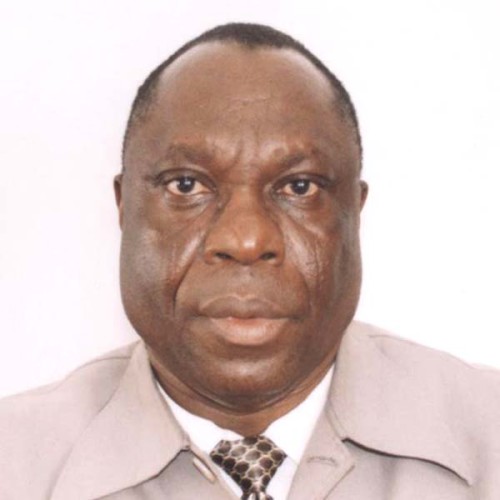
Most of these initiatives focus more on adaptation and the process of responding to climate change through programmes and initiatives that are largely donor driven. In general, the national capacity to implement a structured approach to climate change mitigation and adaptation remains weak and uncoordinated. This has made it difficult to assess the impact of the implementation of these programmes and initiatives.
In the area of climate mainstreaming for sustainable development, although the country has a National Climate Change Policy and Response Strategy that was approved by the Federal Executive Council in September 2012, there is yet to be a good implementation strategy and political commitment towards realizing the goals and objectives of the policy/strategy remains rather lukewarm.
The National Adaptation Strategy and Plan of Action for Climate Change in Nigeria (NASPA-CCN) that has been adjudged as one of the best national documents for adaptation best practices remains nothing but a document with the Department of Climate Change in the Federal Ministry of Environment. Government also approved a National Agricultural Resilience Framework in 2014 with the overall goal of improving resilience and adaptation to climate variability and change in the agricultural sector, including planning and implementation, systems for resource mobilisation, and effective project monitoring and evaluation.
The major challenge remains that there are yet to be clear and well-formulated implementation frameworks and mechanisms for these policies/action plans/frameworks. Moreover, a critical evaluation of other climate change-related policy documents indicate that issues of climate change are not properly addressed by most of them. There are no sectoral plans with climate change bias. The National Planning Commission is just in the process of designing and implementing a training programme for planners at the Federal and State levels on mainstreaming climate change for sustainable development in Nigeria.
The national institutional landscape for climate change governance in the country appears fragile and unprepared to deal with the increased risks posed by unavoidable climate change impacts. The Department of Climate Change (DCC), which was established in December 2011 in the Federal Ministry of Environment, drives the national response to climate change at the national and international levels. The DCC is the country’s Designated National Authority (DNA) for the Clean Development Mechanism, and works with a number of Ministries through the Inter-Ministerial Committee on Climate Change. Its capacity, however, remains limited, as demonstrated by its inability to submit the Second National Communication till January 2014, eleven years after submitting the first one in 2003.
In 2010, the National Assembly passed a bill to create a national Climate Change Commission, which, once established, will likely facilitate coordination and support for the multi-level and cross-sectoral climate change responses response, but the President is yet to assent to the bill. Unfortunately, there is still no timeframe as to the time that the President will assent to the CCC Bill for the Commission to take off. Such a Commission would have provided a good platform for proper climate change mainstreaming into the country’s development process, but its absence is another indication of the very limited effort being made to make climate change a priority development challenge in Nigeria. In general, the climate change governance in Nigeria needs to be further strengthened to ensure an effective mainstreaming of the climate change challenge into the national development process and action. Without good political will, appropriate legislation and strong institution, Nigeria will remain unprepared to deal with increased climate change risk as witness during the 2012 floods.
The multi-stakeholder understanding and approach that is necessary to successfully guide the process of identifying and implementing climate change adaptation and mitigation responses is largely absent. While there are many interested climate change actors (government, non-governmental and external actors, including private sector operators, research community, civil society, media and donors, among others) there is very limited interactions among them.
In general, Nigeria’s current approach to addressing the challenge of climate change in its development process has been hitherto very ad hoc. The country is yet to have national climate change programme that will address various aspects of climate change. While a number of initiatives are operating on different scales, and particularly in the area of adaptation, their implementations do not portend a good approach to a coordinated response that will have significant impact on the country. The national effort to mainstream climate change remains at best very minimal and that the country still needs to do a lot to make climate change a well integrated national issue. A good entry point for appropriate climate change mainstreaming should have been to take the implementaion plan for the National Climate Change Policy and develop a programme that will synergizes the series of proposed initiatives and activities into a comprehensive and holistic climate change programme for Nigeria, including mobilizing for a substantive financing.
Explicit financing for climate change issues and concerns from national resources remains very limited, with a general disposition towards excessive donor dependency. The result is a series of ad hoc interventions and initiatives here and there that are difficult to measure their impact on national response to climate change.
Nigeria is yet to fully undertake detailed assessment of cost estimates for national adaptation actions and mitigation programmes. However, available information from various sources in the country indicates that it will be very costly for Nigeria to adapt well to anticipatory climate changes. The incremental cost in the agriculture and water resources is estimated at US$3.06 billion per year by 2020 and about US$5.50 billion in 2050. For the water sector alone, more than US$1 billion was estimated to be a minimum requirement to enable the country adapt properly in terms of adapting to small dams alone so as to ensure the sustainable development of the country’s water resources under a changing climate. The health sector will require about US$3.06 billion in 2020. This is expected to increase to US$5.50 billion by the year 2050. Because of the poor transport conditions, the incremental cost for its adaptation will be high. The transport sector will require about US$5.33 billion and US$9.69 billion per year by 2020 and 2050 respectively.
A recent African Development Bank report estimates that the African continent needs between USD20-30billion per year over the next ten years to address climate change and between USD9-12billion annually to put Africa on the path to low-carbon growth (AfDB, 2012). In the past, however, Africa has received the lowest amounts for climate change action compared to other regions. Between 2009 and 2010, out of the approved USD2.9 billion for the continent, only USD435million was actually delivered. For Nigeria, the World Bank Economics of Adaptation estimates that total adaptation costs maybe up to USD1.2 billion per annum over a period of 2010-2015 (World Bank 2010), a third of this amount relates to the adaptation of infrastructure. It is worthy to note that properties worth more than N2.6 trillion (about US$16.6 billion) were damaged or lost to the floods that affected most parts of Nigeria in 2012. With a high probability of short recurrence intervals of such extreme weather events, Nigeria will need a lot of resources to overcome the challenge of climate change.
All in all, the above analysis indicates that effective mitigation and adaptation measures for climate change risk management and control in Nigeria requires that an appropriate and inclusive financial architecture is in place. This calls for an improved national budgetary commitment to climate change and an enhanced national capacity to enable Nigeria tap into a number of climate change funds that are available at the global level, including (i) Special Climate Change Fund (SCCF); (ii) Strategic Priority on Adaptation (SPA) under the GEF Trust Fund; and (iii) Adaptation Fund. In addition, there are Climate Investment Funds (CIF), including the Clean Technology Fund (CTF) and the Strategic Climate Fund (SCF) managed by the World Bank.
There is also the new Green Climate Fund sited in Songdo Incheon City, South Korea and managed by a Board. Access to most of these funds is constrained by the complexity of project design and implementation, and the need to comply with overwhelming administrative and financial management requirements. Because of weak national technical capacity, Nigeria has not been able to benefit significantly from these financial mechanisms.
Overall, climate change needs to be brought into the mainstream of national development policies, plans, strategies and programmes in Nigeria to make the country’s development more resilient to its impacts. Many climate change actors, including civil society organizations, academia, private sector operators, media and development partners need to be brought on board in a coordinated manner to enable the country harness the opportunities provided in effective mitigation and adaptation responses to climate change for climate resilient sustainable national development.
(People who are interested in additional technical details can read: (a) FMEnv (Federal Ministry of Environment), 2010: National Environmental, Economic and Development Study (NEEDS) for Climate Change in Nigeria. National Report Submitted to the UNFCCC.; (b) Oladipo, E. O. 2013a: Assessment of the Adaptation of the Agricultural Sector to Climate Change and Variability in Nigeria. Technical Report Submitted to CILLS; and (c) Oladipo, E. O. 2013b: An Inventory of Projects and Programmes in the Field of Climate Change, Stakeholders Involved and Level of Climate Change Mainstreaming in National Strategies and Policies in Nigeria. Technical Report Submitted to CILLS).
By Prof. Emmanuel Oladipo (Climate Change Specialist and Adjunct Professor, Department of Geography, University of Lagos, Nigeria. Email: olukayode_oladipo@yahoo.co.uk)
About 28 children die in Nigeria lead poisoning
At least 28 children under the age of five have been killed by drinking stream water contaminated with lead in Nigeria’s Niger State, Health Minister Fidelis Nwankwo has said. Officials have however blamed the contamination on illegal mining.
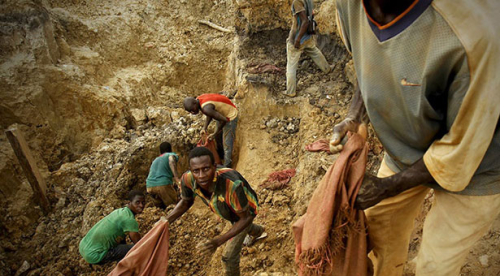
Villagers “were mining for gold, and (the water was made toxic) by its impurities,” said Mohammed Usman, a government health official in Niger State on Friday.
Nwankwo said on Thursday that 28 out of 65 children who became ill from the contamination had died, according to reports up to May 12 from villages in the Rafi Local Government Area (LGA) that borders Kaduna State. Many cows, goats and chickens and other livestock were killed too.
“The villagers initially ascribed the infections to witchcraft, but it must have being going for years,” Usman said, adding reports suggested the deaths were in April.
“The affected children were found to have high serum lead levels …17 to 22 times higher than the acceptable limits as established by the World Health Organisation (WHO),” said Nwankwo, the Minister of State for Health.
Large scale lead poisoning from illegal mining has been reported before in Nigeria, notably in Zamfara State in 2010 when at least 163 people died out of 355 who became sick from the toxins.
Courtesy: Reuters
